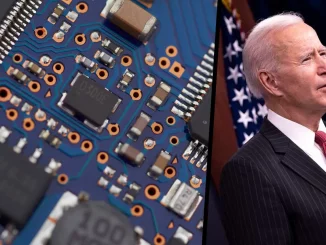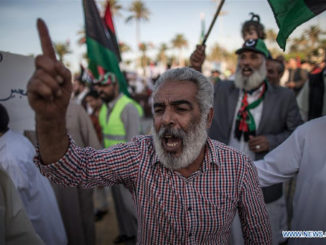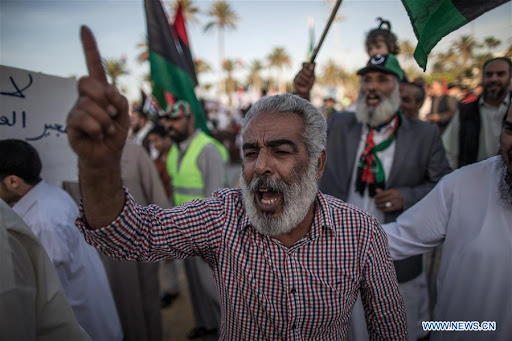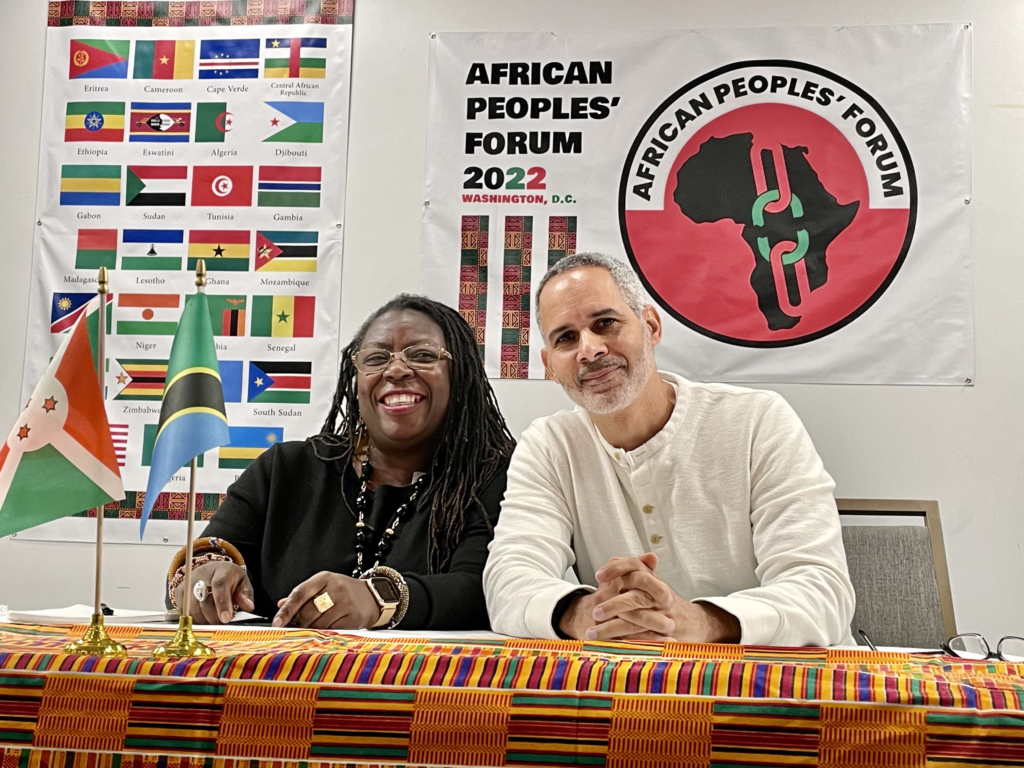
WASHINGTON, D.C.—Hundreds of people of African descent convened this past weekend at two events that aimed to be the people’s opposition to the Biden administration’s U.S.-Africa Leaders Summit, which is taking place this week amid a military buildup to enforce the summit’s security in Washington, D.C.
The summit is described as a four-day event (Dec. 12-15) that is designed to foster economic opportunities and reinforce the United States’ alleged commitment to human rights and democracy. It is the first summit of its kind since 2014.
“I look forward to working with African governments, civil society, diaspora communities across the United States, and the private sector to continue strengthening our shared vision for the future of U.S.-Africa relations,” U.S. President Joe Biden is quoted as saying on the summit’s website.
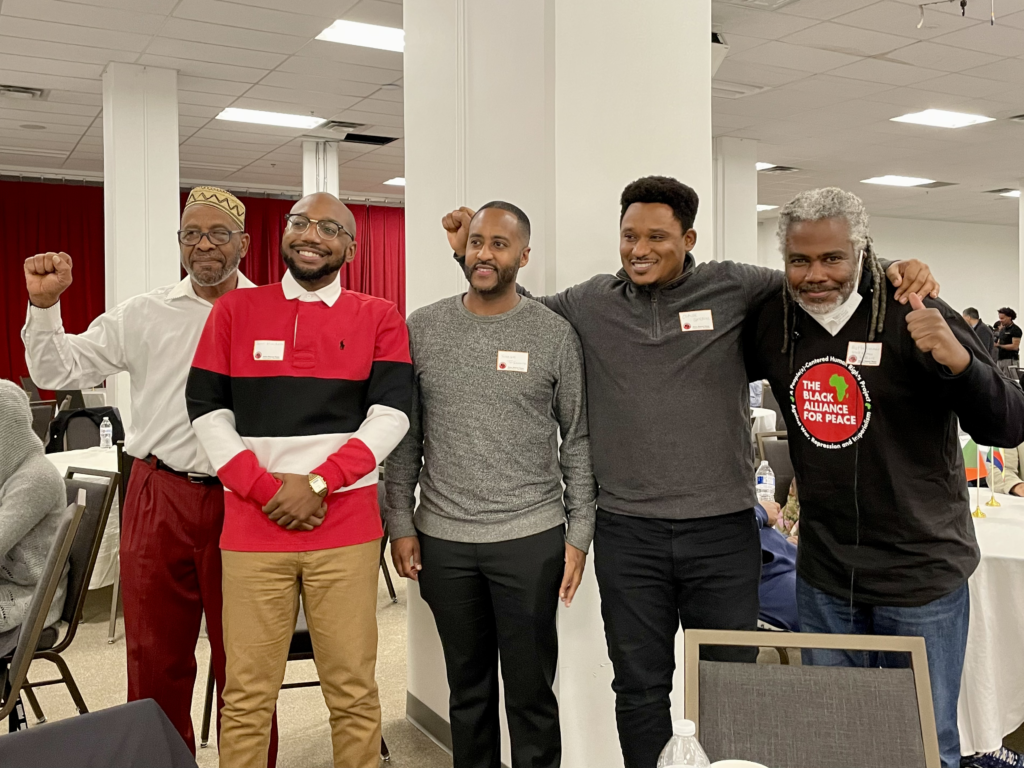
However, the summit comes amid dim relations between the United States and many African countries, some of which have decried Western financial and arms support for the war in Ukraine. Western sanctions against Russia have caused price spikes in wheat, with 345 million people in the world expected to experience “acute food insecurity.” Several African countries have relied on Russia and Ukraine for large portions of their wheat imports. However, U.S. officials have been pilloried, too, for saying African countries that continue to trade with Russia would face consequences.
Speakers at both counter events said the Biden summit is really a U.S. attempt to maintain control over the African continent.
Netfa Freeman, an organizer with Pan-African Community Action and a member of the Black Alliance for Peace Coordinating Committee, spoke December 10, at the Global Pan-African Peoples Intervention on the U.S.-Africa Leaders Summit. The Global Pan-African Congress organized the event at Howard University’s School of Social Work in Washington, D.C. Freeman read aloud a December 9 statement the Black Alliance for Peace issued.
“The Black Alliance for Peace (BAP) recognizes the ‘U.S.-Africa Leaders Summit,'” the organization states, “as nothing more than collusion between neo-colonial powers and U.S. attempts to advance and maintain dominance over the continent.”
The Biden administration invited leaders of 49 African countries. The exceptions were Burkina Faso, Eritrea, Guinea, Mali, the Saharawi Arab Democratic Republic and Somaliland. An unnamed “senior administration official” was quoted in a transcript of a December 8 background press call as citing the African Union suspending most of these countries for why they were not invited. (A background press call is meant to provide off-the-record information to invited press, hence officials went nameless in the transcript. Toward Freedom was not invited.)
However, long-time colonizer and U.S. ally, France, recently announced the removal of military troops in Burkina Faso, Mali and Niger. This came after coups and instability in these countries. Mali also recently banned French NGOs. Guinea experienced a coup in 2021 that appeared to be welcomed by its population. Meanwhile, the United States does not recognize Western Sahara, or the Saharawi Arab Democratic Republic, as a sovereign state.
While the officials mentioned various civilian-led entities the United States has deployed to cultivate leadership on the continent, none of them spoke about the U.S. Africa Command (AFRICOM). That is one of 11 combat and technical military structures the United States has deployed throughout the world to ensure control of shipping lanes and resources. AFRICOM’s press officer has denied commerce is its only interest, while acknowledging it is one of AFRICOM’s reasons for being. Meanwhile, its 2022 “posture statement” to the U.S. Congress states, “Africa sits astride six strategic chokepoints and sea lines of communication, enables a third of the world’s shipping, and holds vast mineral resources. When access through these strategic chokepoints is blocked, global markets suffer.”
Speakers at the weekend’s events remarked on U.S. intentions.
“The U.S. government and their scribes are misguiding the public on what the roles of the U.S. government, NATO, AFRICOM and neoliberal leaders are in maintaining the state of unrest and violence in countries so they can steal their resources,” said Jacqueline Luqman, a Toward Freedom board member, who spoke as co-host of Radio Sputnik’s “By Any Means Necessary” on a panel about the role of the media.
“The US gov. & their scribes are misguiding the public on what the roles of the US gov., NATO, AFRICOM & neoliberal leaders are in maintaining the state of unrest & violence in countries so they can steal their resources,” @luqmannation1 @Blacks4Peace #apf2022. pic.twitter.com/WQ5Xti8eMV
— CODEPINK (@codepink) December 11, 2022
That panel was one of three held during the first-ever African Peoples’ Forum. The December 11 event was organized at the Eritrean Civic and Cultural Center in northeast Washington, D.C. Moderators included Eritrean activist Yolian Ogbu and Hermela Aregawi, an independent journalist of Ethiopian descent who has reported on the Horn of Africa.
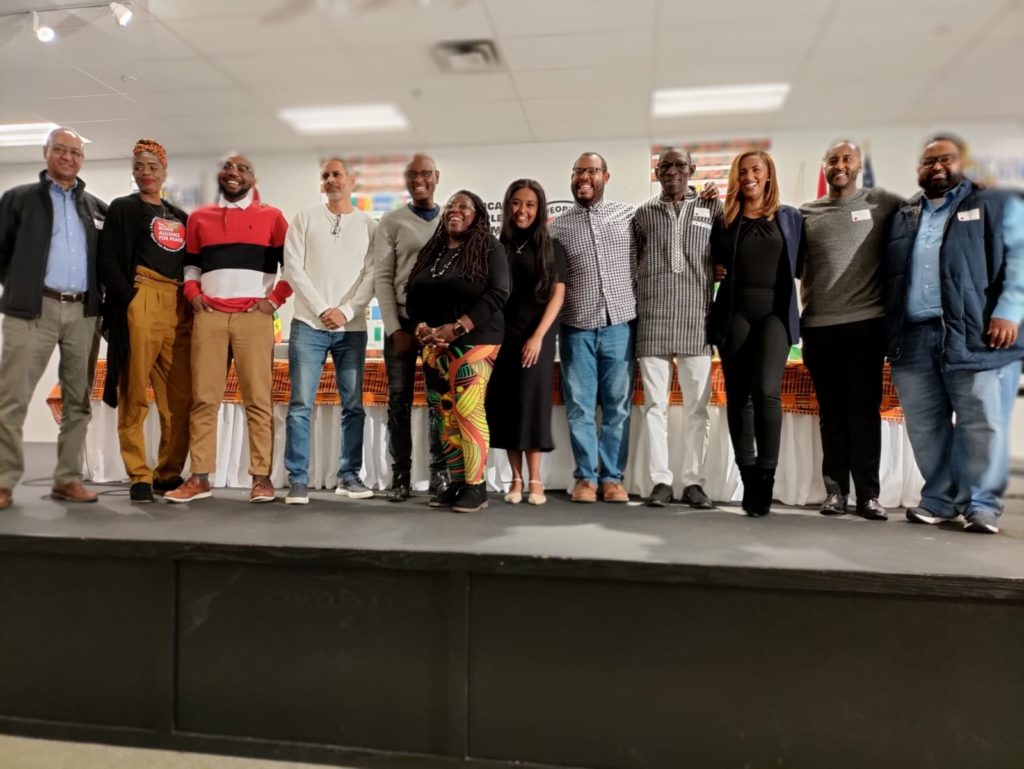
The five-hour event featured three panels of prominent speakers like Eritrean journalist and activist Elias Amare; and Paul Sankara, brother of assassinated Burkina Faso leader Thomas Sankara; among many others.
Aregawi announced to the audience of a couple of hundred mostly African-descended people that the event was so successful, the forum may take place quarterly to create more opportunities for African anti-imperialist activists to come together. The event was pulled together in just three weeks’ time, she said.
To continue with the momentum in opposition to the U.S.-Africa Leaders Summit, BAP has organized a week of actions, December 13-16, to raise awareness about the nature of the U.S. role in Africa.
“BAP calls for the dismantling of NATO, AFRICOM and all imperialist structures,” the organization’s statement reads. “Africa and the rest of the world cannot be free until all peoples are able to realize the right of sovereignty and the right to live free of domination.”
Julie Varughese is editor of Toward Freedom.


